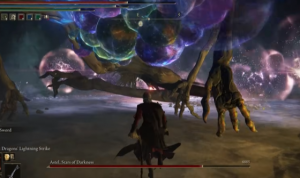In Elden Ring Runes, the vast and mysterious Lands Between are shaped by more than just bosses and powerful weapons—they are defined by factions with unique philosophies, goals, and ideals. Understanding these factions offers players a deeper appreciation of the lore-rich world crafted by FromSoftware. This guide explores what these factions represent, how they influence gameplay, and what players can take away from engaging with them.
Understanding Factions in Elden Ring
Factions in Elden Ring aren’t always clearly defined like in traditional RPGs. Instead, they manifest through characters, questlines, and areas of the world. Each group reflects certain ideals or perspectives on power, destiny, and the role of the Erdtree. Aligning yourself with a faction often determines your narrative arc, the endings available to you, and how you interact with the game world.
Let’s explore the most influential factions and what they represent:
1. The Golden Order
The Golden Order is the dominant religious and philosophical ideology in the Lands Between. Rooted in the guidance of the Erdtree and the influence of the Greater Will, it promotes cosmic order, faith, and hierarchy. Those who follow the Golden Order—like Radagon and Queen Marika—believe in a structured world governed by divine law. This faction is a symbol of traditionalism, orthodoxy, and divine destiny.
Players interested in preserving the Erdtree and reinforcing divine structure may find themselves aligning with the Golden Order. Questlines involving Brother Corhyn and Goldmask delve deep into the metaphysical aspects of this faction.
2. The Frenzied Flame
At the opposite end of the spectrum lies the Frenzied Flame. This chaotic faction believes that the world is inherently broken and must be undone through madness and destruction. It opposes the Erdtree and seeks to liberate beings from suffering—even if it means total annihilation.
The Frenzied Flame represents nihilism, revolution, and the ultimate rejection of cosmic order. Players who choose this path pursue one of the most controversial endings in Elden Ring, where the world is engulfed in flame and chaos.
3. The Carian Royals and Lunar Magic
The Carian Royals and the Academy of Raya Lucaria follow a different form of power—intellect and sorcery. They value knowledge, tradition, and the power of the moon. Queen Rennala and her daughter Ranni represent a faction that diverges from the Erdtree, offering a more esoteric and free-thinking alternative.
Choosing to serve Ranni the Witch allows players to embrace the Dark Moon ending, symbolizing independence from the divine and a commitment to hidden wisdom. This path appeals to those who value self-determination and mysticism over ordained order.
4. The Dung Eater and the Loathsome Undead
While not a formal faction, the Dung Eater represents a philosophy of pure defilement. His hatred for life and legacy suggests a deeply nihilistic view of the world, where corruption is inevitable and must be embraced.
Interacting with the Dung Eater opens a path to the Blessing of Despair ending, one that rejects all other forms of transcendence. This route is a commentary on the horror of immortality and the pain of existence.
5. The Volcano Manor
Volcano Manor and its inhabitants, including Lady Tanith and Rykard, offer an ideology of rebellion against the Golden Order. They believe in strength, ambition, and the right to challenge divine authority. Their motto, “Live by the strength of your own sword,” captures their creed.
This faction provides an opportunity to hunt other Tarnished, representing the idea that justice is determined by personal power, not divine decree.
The Role of Elden Ring Runes
In understanding these factions, it’s also crucial to explore the mechanics that connect them—especially Elden Ring runes. Runes are the main currency of the game, used to level up, buy items, and upgrade equipment. But beyond that, runes serve a deeper symbolic and thematic purpose.
So, what are the runes for in Elden Ring? On the surface, they represent experience and progression. Players earn them through combat, exploration, and quest completion. Yet in a broader sense, runes signify the essence of life, power, and ambition. Each time you absorb a rune, you're taking part in the fundamental struggle of the Lands Between—to shape your destiny through strength.
The factions in Elden Ring are often in pursuit of these runes, whether to enforce order, spark revolution, or accumulate forbidden knowledge. Understanding the value of runes in both gameplay and lore helps players grasp the true stakes of the factional conflicts.
The world of Elden Ring is defined by complex ideologies and hidden motivations. Whether you side with the Golden Order’s divine law, the rebellious fire of Volcano Manor, or the cold wisdom of Ranni’s path, each faction offers a lens through which to view the story of the Lands Between. And as you collect Elden Ring runes and face increasingly daunting challenges, remember that every choice, every rune spent, and every allegiance made is a step toward shaping a new world—or burning the old one down.



Login or register to post your reply